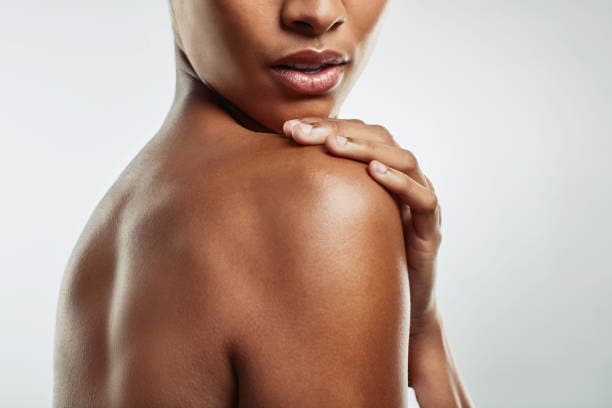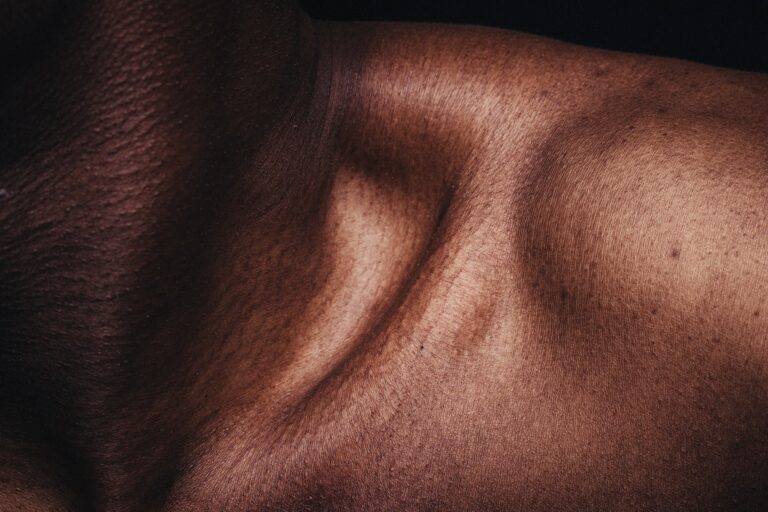How To Get Clear Skin? Best Tips And Tricks For Achieving Your Dream Skin

What is “clear skin”?
We want to discuss how to get clear skin. But first, let’s look into what clear skin is. Throughout our lives, nearly every single one of us will struggle with some form of acne. I don’t know of a single person who hasn’t experienced blemishes, either large or small, on their face. This is likely because there are many root causes of acne, from the environment to hormones to our diets. It is very unlikely that any human will go their entire life with completely clear skin. The most that any of us can aim for is to keep our faces as clean and clear as possible, and for our faces to reflect the internal health of our bodies.
It’s important to note that just because you have acne, you are not any less attractive or healthy. Current beauty trends tend to emphasize nude makeup, light coverage product, and a blemish-free face, sometimes known as “glass skin.” Although a focus on natural beauty sounds like a good thing, this trend inadvertently mainly highlights people with completely clear skin.
Something that is so natural and ubiquitous should not be seen as a flaw. However, it is true that acne can be uncomfortable and unpleasant. It may also represent other issues in our health. For these reasons, we may prefer to eliminate acne as much as possible. If we recognize that having pimples or other blemishes is entirely normal and something that happens to everyone, we should be able to implement certain practices to aid in clearing our skin.
What are the causes of acne?
Everyone wants to know how to get clear skin fast and how to get it overnight. Let’s first look into the causes of acne. One reason that acne can be so difficult to “cure” is that there are many, many different causes of it. The most common cause of breakouts is changes in hormone levels (hormonal acne), which is why acne is most prevalent in teenagers. When we go through puberty, we experience waves of fluctuating hormones, which impacts the amount of sebum that our pores emit. In our teenage years, these changes are already overwhelming and impact us in more ways than we probably notice. Breakouts are one of the most visible effects of this period of life but are completely normal.
However, hormonal acne is not exclusive to those going through puberty. Women who menstruate are also prone to waves of hormones before, during, and after their period. These hormone shifts can also cause breakouts, although typically on a smaller scale in the later stages of life. Specifically, if you notice breakouts around your jawline and chin before your menstrual period, you can assume that this is due to hormonal imbalances and is temporary. If you are someone who suffers from hormonal acne, learning how to balance hormones may be quite helpful for you.

How to get clear skin?
- If you are experiencing acne for the first time, you should first take the time to evaluate your current routine. It’s important to moisturize your face twice a day and wear biodegradable sunscreen to protect your skin from the sun.
- Determine the cause of your acne – are they hormonal, are they allergic reaction to chemicals in your products? Visit an endocrinologist to do a detailed hormonal test and evaluate the level of different hormones in your body. Remember, hormones rule all aspects of your health – your skin, hair, mood, appetite, and sleep. Therefore, it is important to talk to your provider about testing.
- Switch to natural, organic, and plant-based products. These will reduce your chances of skin purging, breakouts, or allergic reactions that often prevent you from getting clear and glowy skin. Especially look for products with anti-inflammatory ingredients such as St. John’s Worth, Chamomile, among others.
- Simplify your skincare routine – having a routine that is too complicated can also be harmful. When it comes to skincare, less is more, both in terms of steps and ingredients. Look over the components of your products and notice if there is anything that may be causing you irritation.
- Gut health is also extremely connected to the prevalence of acne. That’s why in addition to these surface-level habits, it’s important to pay attention to what’s going on inside your body. Finally, avoiding overly processed foods with too many harmful chemicals will have a positive impact on your skin.
- If you are experiencing consistent acne for an extended period, it might be something that can’t be solved on your own. Seeing a dermatologist can be extremely helpful because there are some types of acne that are chronic. In cases such as these, prescription medicine is often the most effective solution.
Organic and Vegan Products for Clear Skin
Another extremely common source of acne is the products that we put on our skin. From our cleansers to our moisturizers to our makeup products, it’s extremely important to pay attention to ingredient composition. Unfortunately, most cosmetic companies are prone to using fragrances and harmful chemicals that improve the marketability of their products while hurting your skin in the long run. Therefore, choose clean skincare whenever you can.
For this reason, it’s essential to read the ingredients of products before you buy them, no matter how trendy they appear. Sticking to vegan skincare brands such as Plant Mother is an easy way to ensure that your products only contain natural ingredients coming from botanical sources. And it’s not just our facial products that matter– if you notice breakouts on your forehead or around your scalp, it may be due to harmful chemicals in your shampoo or even a dirty hat, headband, or pillow case. Everything that touches your face should be kept as clean as possible.
Additional Factors to consider when wondering how to get clear skin
One factor that we really have no control over is the environment. Living in a region with a lot of air pollution tends to have a detrimental impact on skin, as toxins from smog and garbage cause impurities and clogged pores. Although we can’t keep the outside air clean, an air purifier in the home can help protect you from additional pollution, as well as benefit your overall health. If you feel like your environment is polluted, you might also want to take extra care to keep your hands and face clean.
When the seasons change, you may also notice that your skin changes. In the winter months you may experience dryness, while the summer brings increased oil production. It is during these hotter periods when you want to ensure that you are not letting oil or sweat sit on your face for too long, as their presence will encourage breakouts.
Finally, there is some acne that we are simply prone to and cannot explain. Certain people have the genetic makeup that encourages chronic acne, while some do not. If you are someone whose acne seems to be continuous and uncontrollable, prescription medication is likely the best solution for you. Just remember– irritation, whether it be physical or mental, is certainly not good for the skin. Resisting the urge to pop pimples is difficult but necessary. In general, try to minimize the amount that you touch your face in generally. Finally, stress can lead to breakouts, so remember to take care of yourself and work toward a healthy mindset.

How do I know what causes my acne and how to treat it?
Sometimes you feel like you’re doing everything possible to take care of your skin and it just doesn’t make a difference. In cases like these, it can be helpful to understand the way that our organs impact one another. It’s quite fascinating to realize that different parts of our bodies are responsible for different types of breakouts.
We already learned that acne on our chins and jawlines are caused by hormones and that acne on our hairlines come from harmful hair products. If we’re breaking out on our cheeks, it’s likely due to bacteria on our pillowcases or phones. Breakouts on the forehead and nose can be caused by stress, insufficient sleep, and/or a diet lacking nutrients.
In addition to the different sources of acne, each person has their own physical characteristics that impact the way we should approach treatment. A very important factor is skin type. Skin types can be oily, dry, normal, and/or sensitive. Each of these skin types is determined by how much sebum your glands produce. Sebum is the oil that our face secretes, and it is responsible for most breakouts. Choosing the wrong skincare products for our skin types makes it more likely that our pores will be clogged, leading to increased acne.
People with problematic skin often avoid face oil thinking they would cause clogged pores. This can’t be further from the truth! Face oils balance out your skin’s ph and production of your natural face oil. Synthetic products, on the other hand, tend to dry out your skin which leads to it overproducing oils to compensate for the dryness.
So, what have we learned?
If you ask how to get clear skin overnight, this may not be realistic. But we showed you that there are steps to follow to help you get clear skin with a little patience.
The most important takeaway from this article should be that acne is completely normal. Each person will experience some form of acne over the course of their life. Some go their whole youth without a breakout and then suffer from adult acne, while some have the inverse. There are countless causes for those pesky little pimples, which is why trial and error is often necessary before we find the perfect solution.
The good news is that there are many different products on the market. Unfortunately, there is no magic potion to instantly remove every pimple. But with some dedication to healthy habits and a willingness to try new things, we can all achieve clear skin.
Medical Disclaimer:
This content is for informational and educational purposes only. It is not intended to provide medical advice or to take the place of such advice or treatment from a personal physician. All readers of this content are advised to consult their doctors or qualified health professionals regarding specific health questions. The publisher of this content does not take responsibility for possible health consequences of any person or persons reading or following the information in this educational content. All viewers of this content, especially those taking prescription or over-the-counter medications, should consult their physicians before beginning any nutrition, supplement, skincare product, or lifestyle program.
